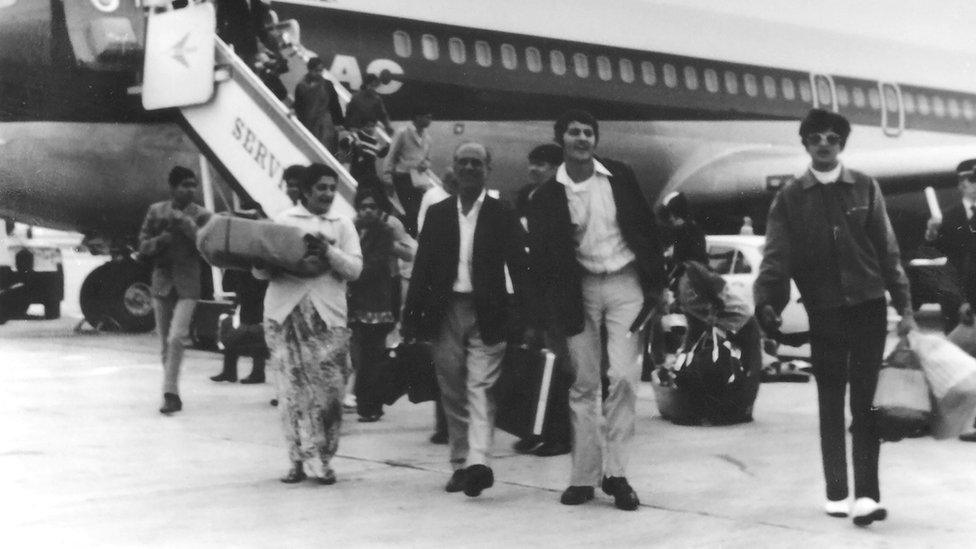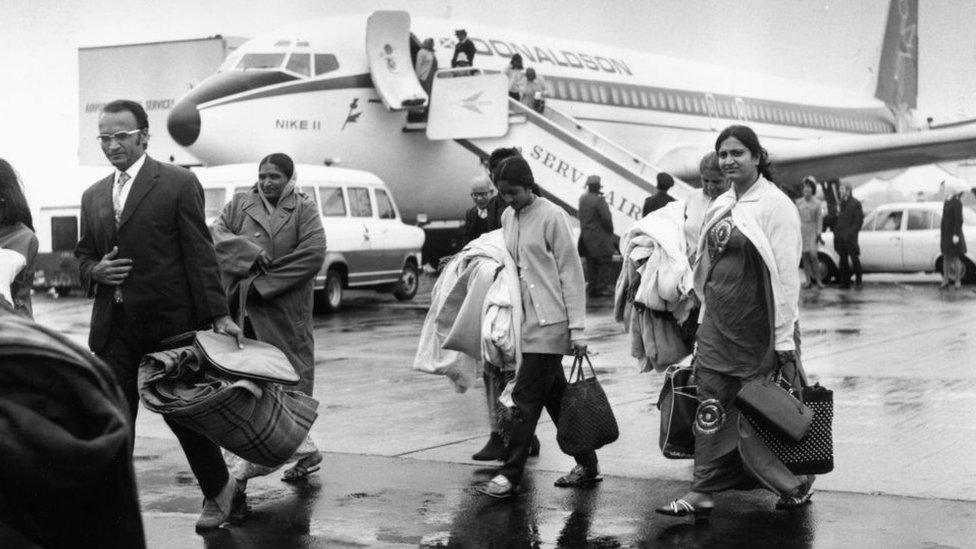University of Leicester to celebrate city's migration history
- Published

The university said the city had been nondescript and tired before migration
A university is to hold a series of public events to celebrate a city's recent history of migration.
The University of Leicester said it planned to hold five public events to coincide with the 50th anniversary of the arrival of Ugandan Asians in the city.
The series will commence on 15 September with a lecture.
The university said migration had helped spark Leicester into life as a city.
'Successful multicultural city'
The programme will include events about Caribbean migration to Leicester, the Leicester Somali community, and Narborough Road which has been called "the most diverse street in Britain, external".
A final event, on 29 October, co-organised with Navrang Arts, will explore the city's Ugandan Asian story.
John Williams from the Unit for Diversity, Inclusion and Community Engagement (DICE) at the university, said: "Fifty years ago, Leicester muddled along as a pretty nondescript, and rather tired, East Midlands city.
"Few people from outside knew about the place and its people.
"But then we had this forced injection of a group of talented and educated new arrivals from a completely different cultural background and Leicester was suddenly sparked into life.
"Migration and the Making of Leicester tells the story of the city's revival from 1972 and how Leicester has since become home to a range of different migrant communities who help make it the thriving and successful multi-cultural place it remains today."
Prof Bernard Ryan, the chair of the Migration Mobility and Citizenship network at the university, said: "The arrival of Ugandan Asians in 1972 was a pivotal moment in Leicester's recent history.
"Despite the city council's initial opposition, many Ugandan Asians established themselves here, and helped Leicester acquire its reputation as a successful multicultural city."

Follow BBC East Midlands on Facebook, external, Twitter, external, or Instagram, external. Send your story ideas to eastmidsnews@bbc.co.uk, external.
- Published9 February 2022
